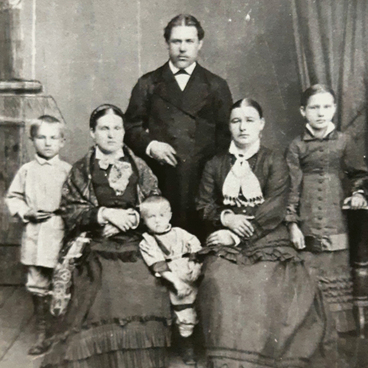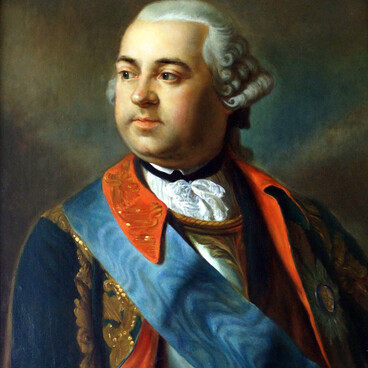This portrait was painted by Valery Kononov, Honored Artist of the Ukrainian Autonomous Soviet Socialist Republic, Honored Artist of the Russian Federation, laureate of the State Prize of the Udmurt Republic. ‘Portrait of I.P. Tchaikovsky’ is a 1989 reproduction of a painting by an unknown artist.
Engineer and Major General Ilya Tchaikovsky left his mark on the history of the industry. He organized the production of iron hulls for steamers in Russia. Besides, he was the father of composer Pyotr Tchaikovsky. At the Votka plant, he laid the foundations for mechanical engineering and determined the enterprise’s course of development for centuries to come.
Ilya Tchaikovsky was the mining director of the Kama-Votka plant. The engineer was born in 1795 in the family of the mayor of Slobodskoy in the Vyatka Governorate. After graduating from the Vyatka two-year school at the age of 13, he began to work at the Izhevsk plant. He worked as a copyist, and he started off at the Votka plant in the same position in 1811. He later wrote in his autobiography: “There were nine of us in the family, and I was the last born son. For all my older brothers, a position in the military has been arranged; in 1808, my mother took me to the Izhevsk plant, where Oberhauptman Andrey Fedorovich Deryabin was in charge.”
Tchaikovsky graduated from the Mining Cadet Corps in St. Petersburg in 1817. He worked in the mountain regions of Russia for 30 years. He was the mining director of the Kama-Votka state plant from 1837 to 1848. Ilya Tchaikovsky was involved in the arrangement and reorganization of the ironworking industry. Under him, the plant was significantly expanded, and new types of production were mastered.
In the spring of 1848 the construction of the passenger steamer “Astrabad” was completed, and it took off into its maiden voyage down Votka and Siva rivers to Kama river. Ilya Petrovich’s son, Petya, who was eight at the time and who will later become the famous composer Pyotr Tchaikovsky, wrote about this trip:
Engineer and Major General Ilya Tchaikovsky left his mark on the history of the industry. He organized the production of iron hulls for steamers in Russia. Besides, he was the father of composer Pyotr Tchaikovsky. At the Votka plant, he laid the foundations for mechanical engineering and determined the enterprise’s course of development for centuries to come.
Ilya Tchaikovsky was the mining director of the Kama-Votka plant. The engineer was born in 1795 in the family of the mayor of Slobodskoy in the Vyatka Governorate. After graduating from the Vyatka two-year school at the age of 13, he began to work at the Izhevsk plant. He worked as a copyist, and he started off at the Votka plant in the same position in 1811. He later wrote in his autobiography: “There were nine of us in the family, and I was the last born son. For all my older brothers, a position in the military has been arranged; in 1808, my mother took me to the Izhevsk plant, where Oberhauptman Andrey Fedorovich Deryabin was in charge.”
Tchaikovsky graduated from the Mining Cadet Corps in St. Petersburg in 1817. He worked in the mountain regions of Russia for 30 years. He was the mining director of the Kama-Votka state plant from 1837 to 1848. Ilya Tchaikovsky was involved in the arrangement and reorganization of the ironworking industry. Under him, the plant was significantly expanded, and new types of production were mastered.
In the spring of 1848 the construction of the passenger steamer “Astrabad” was completed, and it took off into its maiden voyage down Votka and Siva rivers to Kama river. Ilya Petrovich’s son, Petya, who was eight at the time and who will later become the famous composer Pyotr Tchaikovsky, wrote about this trip:



